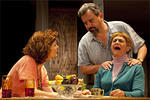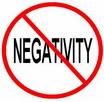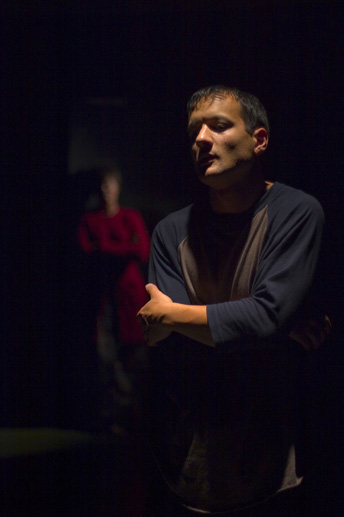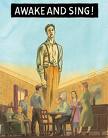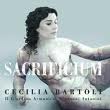
So I was unimaginably thrilled to discover that not only did I not need booze to soften each theatrical blow, but that this was probably the best day of Fringeing I’ve experienced to date.
I didn’t manage to get to all six shows — Performers Under Stress’ riff on Shakespeare’s The Tempest, tempestuous(ness), went on for an hour and a half, which meant I had to skip Hell: The Musical. But with the exception of one production which was very, very, very bad, the other four I saw were rather delightful. And a couple of them even approached art in places. Here’s a quick rundown of what I saw:
1pm, Exit Theatre — Jesus In Montana: I felt a bit preached to by Barry Smith’s solo show about the spiritually gullible. Nevertheless, the performer/writer puts on a slick and engaging performance full of humor and heart. Next time someone mentions the Baha’i faith in conversation, I will be better equipped to follow their train of thought.
2.30pm, The Garage @ 975 Howard — tempestuous(ness): PUS’ take on The Tempest might be rough around the edges. But the ensemble cast attacks Scott Baker’s quite cleverly composed Wicked-meets-Rosencrantz-and-Guildenstern-are-Dead-like script with such gusto that it’s hard not to fall in love with both the actors and the ideas. I could have done without the limp “five-minute-Tempest” at the end of the performance. But I’ll listen to Shakespeare’s sonnets intoned by a middle-aged actor with a passion that belies his speech impediment any day.
5.30pm, Exit Theatre — The Tao of Everest: Obviously the lack of oxygen at the top of Mount Everest has killed a few of British mountaineer Ian Woodall’s brain cells. What on earth makes him think he can put on a play? His self-adulatory presentation (featuring slides, badly edited pop music interludes and lots of arm flailing and pontification) about the Challenges of Reaching the Top is one of the most embarrassingly turgid experiences I’ve ever had in a theatre. The climber also completely fails to acknowledge the controversy surrounding his career, which has been well-documented in the UK press. I blogged about the decision to include Woodall’s show in this years Fringe lineup here.
7pm, The Climate Theater — Legs and All: Sparks fly when the brilliant physical comedienne Summer Shapiro (pictured) teams up with equally-talented clown Peter Musante for a bittersweet and hilarious show about the delicate negotiations that go on between two people embarking upon a romantic relationship. Brandi Brandes’ live percussion playing adds an extra layer of quirk to the pair’s lively and often surreal physical escapades.
8.30pm, The Climate Theater — Show No Show: Climate (and former Cirque du Soleil) stalwart John Gilkey plays an over-the-top comedy club-type MC in a performance that is part stand-up-comedy situation comedy and part off-the-wall farce. Joined by his downbeat colleagues in clowning Donny Divanian and Alec Jones-Trujillo, Gilkey weaves a face-achingly funny tale of three comedians striving to get it right.
The San Francisco Fringe Festival continues through September 20. Tickets are cheap! Find out more here.


